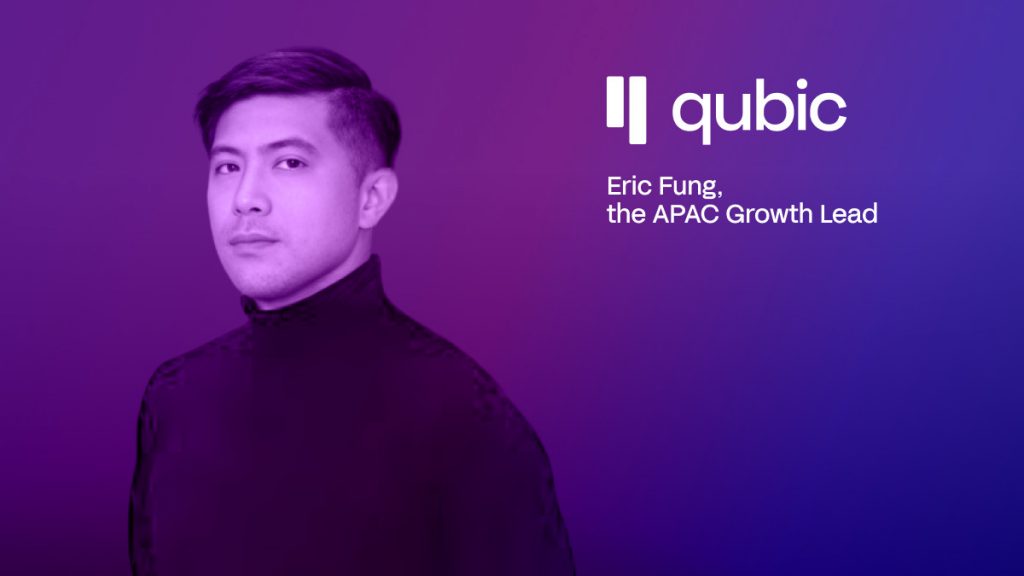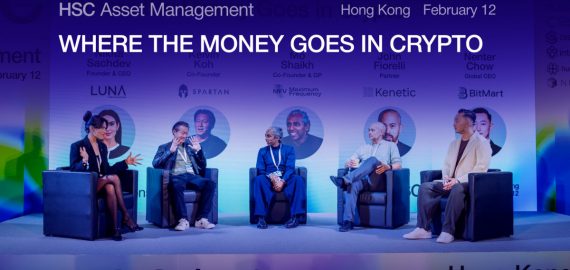Inside Qubic’s Vision: Eric Fung on Merging AI, Oracles, and Smart Contracts for a New Blockchain Era


In Brief
Eric Fung discusses the innovative strategies and technologies behind the blockchain ecosystem, including AI, oracles, and smart contracts, aiming to enhance industries and decentralized finance.

In this interview, Eric Fung, the APAC Growth Lead at Qubic, shares the innovative strategies and groundbreaking technologies behind Qubic’s blockchain ecosystem. From the unique quorum-based protocol to the integration of AI, oracles, and smart contracts, Fung dives deep into how Qubic is set to enhance various industries, enhance decentralized finance, and shape the future of AI accessibility worldwide.
How does Qubic’s quorum protocol differ from traditional consensus mechanisms in blockchain?
Qubic is a quorum-based computing blockchain designed for various tasks. Any changes that need to be made in the network require a quorum. This means we need 66% of the overall mining power, plus a large pool of computers, to agree on any changes—whether they involve smart contracts, the network’s infrastructure, or economic adjustments.
What are the potential implications of combining smart contracts with oracles in Qubic’s ecosystem?
With this combination, our AI can access real-world data more effectively. We’re looking for more data providers to supply this information. This allows AI to better understand what’s happening in the world and operate autonomously. So, the integration of oracles with smart contracts facilitates automation. Our AI, AGI—artificial general intelligence—can solve problems by itself in this setup.
Given Qubic’s unique features, what industries or sectors might benefit most from adopting this technology, and why?
Many sectors could benefit from Qubic, including medical science, transportation, and interior science research. However, we’re particularly focused on the medical field because breakthroughs here can significantly benefit humanity and, consequently, our AGI system. This sector offers opportunities for impactful developments that align with Qubic’s goals.
How might Qubic’s combination of oracles, smart contracts, and AI impact the development of decentralized finance applications?
The impact is quite substantial. With smart contract automation and AI, the system can respond to different market indicators. This adaptability is crucial for both technological advancements and market-wide financial changes. Current trading bots don’t account for evolving market scenarios or emotional factors in trading, but our AGI aims to incorporate these elements, providing a more dynamic and human-like approach to finance, peer-to-peer transactions, and trading.
What are the potential security implications of Qubic’s quorum protocol? How does it address common blockchain vulnerabilities?
We’re still developing this aspect, but overall, the data will belong to the user. Qubic will only handle the computing processes while the actual data storage remains with the user. This approach addresses security and privacy concerns. It’s a work in progress, and more details will be available in our forthcoming white paper.
Can you explain how Qubic’s anti-military license works? What are the potential benefits or drawbacks of this approach?
Our goal is to make AI accessible to everyone. Many countries lack direct access to AI platforms like ChatGPT or Google Gemini unless they use VPNs. Our license, which is open-source, ensures that anyone can use AI—regardless of their location or background—as long as it doesn’t harm humans. This means it cannot be used by military personnel or connected with military equipment. The aim is inclusivity and ethical use.
Can you describe the role of Qubic’s Oracle machines? How might they be used to enhance the capabilities of smart contracts?
That’s a good question. Smart contracts operate somewhat like automation tools that execute predefined conditions, while oracles provide the real-world data necessary for these contracts to function effectively. Oracles feed external information into the blockchain, triggering various functions within smart contracts. With the integration of AGI, these systems can make smarter, more informed decisions, guiding users more effectively.
How does the quorum protocol’s requirement for a supermajority of computers to agree on transactions and smart contracts impact the network?
The quorum protocol requires 66% of the computing power—451 out of 676 computers or validator nodes—to agree on major changes. This setup ensures a high level of security because a significant majority of people need to approve any alterations. Unlike Bitcoin’s 51% proof-of-work system, which relies on miners, our model requires a supermajority of independent computers. This approach makes it more difficult for any single entity to gain control, thus enhancing security.
Can you explain how Qubic’s smart contract IPO system incentivizes developers to build useful applications on the platform?
The IPO system for smart contracts allows anyone with Qubic tokens to invest in new contracts. They can bid on a smart contract, and if it generates revenue, they receive a share. For example, if a smart contract charges a 1% fee per transaction, the investors—those who hold a stake in the contract—receive a proportion of that revenue. This system decentralizes smart contract ownership and fosters a Web3 ecosystem.
Can you describe what Aigarth is and the purpose of creating it?
Aigarth is our AI system. The name comes from “AI” and “Garth,” meaning garden. It’s a metaphorical garden of different types of AI—good, bad, useful, and useless—that evolve together. Our founder envisions Aigarth as a collection of AI tools that, over time, could become sentient. This diverse “garden” approach allows for a range of AI applications and experiments.
Can you tell me about Qubic’s plans?
Our vision is to make AI accessible to everyone. We have a comprehensive roadmap that includes expanding to more exchanges, incorporating more oracles and smart contracts, and building a larger team. We’re hiring and inviting more developers to join us. We also have a strong grant program to support innovative community ideas, like introducing staking and creating new apps. We’re expanding globally, especially in Asia and North America, and we aim to continue growing our presence worldwide.
Disclaimer
In line with the Trust Project guidelines, please note that the information provided on this page is not intended to be and should not be interpreted as legal, tax, investment, financial, or any other form of advice. It is important to only invest what you can afford to lose and to seek independent financial advice if you have any doubts. For further information, we suggest referring to the terms and conditions as well as the help and support pages provided by the issuer or advertiser. MetaversePost is committed to accurate, unbiased reporting, but market conditions are subject to change without notice.
About The Author
Victoria is a writer on a variety of technology topics including Web3.0, AI and cryptocurrencies. Her extensive experience allows her to write insightful articles for the wider audience.
More articles

Victoria is a writer on a variety of technology topics including Web3.0, AI and cryptocurrencies. Her extensive experience allows her to write insightful articles for the wider audience.


















































